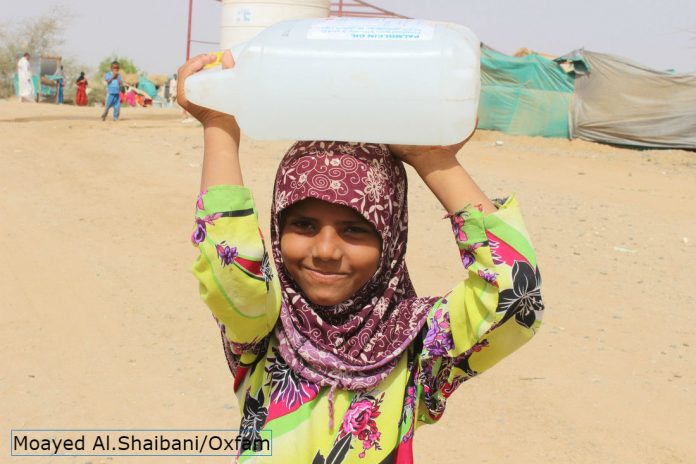Fifteen million people in Yemen have had their water supplies severely cut, putting them at risk of deadly diseases like cholera because of a fuel crisis, analysis by aid agencies, including Oxfam, has shown.
Eleven million people relying on water supplied by piped networks and four million people who depend on water trucked in by private companies, have had to drastically reduce their daily consumption since fuel prices soared in September. In three major cities, Ibb, Dhamar and Al Mahwit, home to around 400,000 people, central water systems have been forced to shut down completely.
Oxfam has had to cut trucked water to thousands of people because of the increase in fuel prices. Piped water systems installed by Oxfam, which supply a quarter of a million people, are running at around 50 per cent capacity.
Access to clean water is a matter of life and death in Yemen, particularly for the more than seven million people already weakened by malnourishment, as water borne diseases are rife. The country has experienced one of the worst cholera outbreaks in recent history. Since April 2017, there have been over two million suspected cases of cholera and over 3700 deaths.
Muhsin Siddiquey, Oxfam’s Yemen Country Director said: “This fuel crisis is affecting every area of people’s lives but none more crucial than the lack of clean water. For millions of Yemenis already struggling to survive hunger and disease, clean water is a lifeline that is now being cut.
“This weaponisation of the Yemeni economy is yet another cruelty inflicted on the people of Yemen who have been forced to endure four years of conflict. All sides need to end the restrictions being imposed on importers so that fuel can once again reach the country unimpeded.”
Fuel is crucial to the supply of clean water in Yemen. Many people depend on groundwater which is brought to the surface by pumps running on solar power and fuel. Others, particularly people who have had to flee their homes and are living in camps, rely on water brought in by trucks which run on diesel.





















